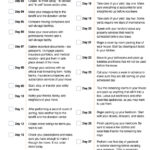If you have decided to move to a different state, you will probably want to know how to prepare for it. This article will cover the planning aspects of moving out of state, such as budgeting, disaster planning, and finding a new home. Once you have the budget, it’s time to begin planning your move. To make things easier for yourself, I’ve outlined some of the most critical steps to take to prepare for your move.
Budgeting for moving out of state
Moving out of state can be expensive, and you should plan carefully to avoid unexpected costs. A typical move costs about $1,700, and this price can add up quickly. If you have a lot of belongings and need to pack them quickly, you may want to consider renting a truck to move your entire household. Although this option is more expensive than renting a moving van, you can still save money by renting one that fits all your items.
The cost of living will vary significantly in your new location. Be sure to factor in additional expenses, such as a new mortgage, utilities, car insurance, and transportation. For the home itself, you will need to budget for new furniture, decor, and homeowners insurance, among other things. A cost of living calculator can help you estimate the total cost of these expenses. You can also use sites like Numbeo to research housing costs in the new area and estimate how much it would cost to buy or rent an apartment or house.
Preparing for disasters
While local government and disaster relief organizations will do their best to help you, preparing for a natural disaster is a good idea. In some situations, they may be unable to reach you in time or must focus their attention elsewhere. Knowing how to respond to flooding, extreme cold, and fires is vital. Planning to be self-sufficient for three days, including food and shelter, is also a good idea.
Before a disaster, make sure your home is prepared for any emergency. Know where your utilities are located and how to turn them off. Create an emergency plan and practice it every six months. Practice your plan with family members, assigning responsibilities. If possible, practice it with friends and neighbors. Be sure to carry emergency supplies and update your contact information as needed. Remember to take your pets with you. Please make sure they are correctly ID-tagged and have a place in a shelter.
Planning ahead
One of the most important steps when planning a stove out of state is to save enough money to last more months in your new home. Moving out of state on a tight budget is not always possible, but planning will allow you to make the move as affordable as possible. When planning your budget, consider your one-time and ongoing living expenses in your new state. The more you prepare for your move, the fewer surprises you’ll have to deal with. Then, you can cut your current expenses to save money for a more affordable move.
The next step in planning for your move is to purchase supplies. Purchasing items ahead of time will help you avoid running out when moving day comes. Some of these items are free or available for quick shipping, making the transition seamless. Think about buying toothbrushes, toilet paper for the new state, and non-perishable snacks and beverages. Make sure to let your children know about the move so they can prepare for it in a way that will keep them happy and busy.
Finding a new place to live
Before you move to another state, you should do some research on housing options and local prices. Start by researching the state’s regional background, including topography, weather, and the types of cities and towns. Consider how much money you can afford to pay each month and what your transportation costs will be. Take a road trip to see how the area is before you make a final decision. Be honest about your credit situation and how much income you need to make to afford your new apartment.
Researching the local cost of living can save you money on rent and utilities. You can also use tools to determine the cost of living in your new area. For example, you can use websites like NeighborhoodScout and Numbeo to get an idea of the average costs of living in your new location. It’s also helpful to consider whether you’ll have to purchase new furniture, decor, and car insurance. Finally, you can ask people about their experience living in the area.






